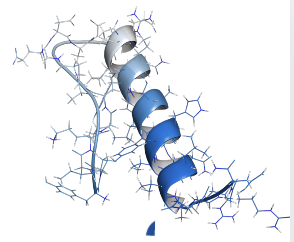
Multipeptides for Hair Loss: Do They Deliver?
Share
Many hair serums today market key ingredients: multipeptides. Multipeptides are presented as cutting-edge solutions for thinning hair. But do they truly work — or are they just another trendy label? At Valoris Lab, we help you compare mass-market multipeptide products with a personalized, scientific approach.
Key Messages
Peptides are strings of molecules called amino acids, which are the "building blocks" of proteins. Peptides are basically short proteins that are about 2-100 amino acids long. Your body makes natural peptides by itself. Since the 1920 researchers and private companies have been developing peptides as treatment. The engineered peptide we all know is insulin. Or Collagen marketed for skin ageing pruposes.
Certain bioactive peptides may support the growth of longer, thicker, and healthier hair. These peptides are commonly formulated as topical serums for direct application to the scalp. Additional options include oral collagen peptide supplements, available as powders or capsule.
- Peptides are the components that make communication between cells possible.
- Some multipeptides are designed to mimic growth factors for hair.
- Those peptides signal hair follicles to grow stronger and thicker.
- They’re often combined with ingredients like caffeine or biotin, but effectiveness varies widely.
- Peptides can fail to address the root cause of hair loss.
- They come in serum, encapsulated or using microneedling.
-
The challenge is to succeed to deliver the right peptide to the right cell and mechanisms.
🔍 Comparison: Generic Multipeptide Serums vs. Valoris Lab
|
Aspect |
Generic Multipeptide Serums |
Valoris Lab Personalized Solution |
|
Formula |
Pre-mixed peptides, one-size-fits-all |
Custom-blended ingredients |
|
Targeting |
General scalp stimulation |
Tailored to your hair type, lifestyle, body |
|
Support |
No follow-up, little guidance |
Continuous follow-up |
|
Ingredients |
May contain harsh preservatives |
No harsh preservatives |
What Clients Like & Dislike about multipeptides for hairloss
Many users seek an alternative to minoxidil/finasteride, hoping for “natural” or “gentle” solutions.
They like:
- Easy to find online or in stores.
-
Non-prescription, convenient to try.
They dislike:
- Slow or no results without personalization.
- Can cause scalp irritation
- No support or follow-up
-
Moderate to low satisfaction
What AI Says about multipeptide for hair density
AI trend analysis (chatgpt , 2025) shows interest in “multipeptide hair serums” rose dramatically in the last 3 years. Overall sentiment is moderately positive. Advocates often share good hair-care routines alongside peptides, so effects are hard to isolate. Users often claim improved hair texture, less breakage. Reddit threads highlight that peptides might work best as an add-on, not a stand-alone solution.
People combining peptides with personalized care see 2–3× higher satisfaction.
- ValorisLab is a complement to your daily routine with peptides, and is customized to your needs.
What Science Says about multipeptide for hair density
Copper-binding peptides such as GHK-Cu have been shown to stimulate hair follicle activity and may promote hair regrowth in individuals with specific alopecia (Chen, 2015). Growth factors show promising results as well (Malak, 2024). Ongoing research on peptides is on the way in vitroo and in vivo (Kageyama, 2024).
Which peptide or combination of peptides you need requires personalized diagnosis and treatment.
Conclusion
Multipeptides hold promise for hair regrowth but they’re not a magic bullet. For best results, your solution with peptides should be adapted to your unique needs.
Ready to move beyond generic multipeptides? Discover Valoris Lab’s customized solution today.
References:
Chen P, Cescon M, Bonaldo P (2015) Lack of collagen VI promotes wound-induced hair growth. J Investig Dermatol 135(10):2358–2367
Malak M. Almutlq, Abrar E. Bukhari; Growth Factors and Microneedling in Alopecia Areata: A Narrative Review. Skin Appendage Disord 2 April 2024; 10 (2): 92–98.
Kageyama, T., Seo, J., Yan, L. et al. Effects of oxytocin receptor agonists on hair growth promotion. Scientific Reports 14, 23935 (2024). www.nature.com
